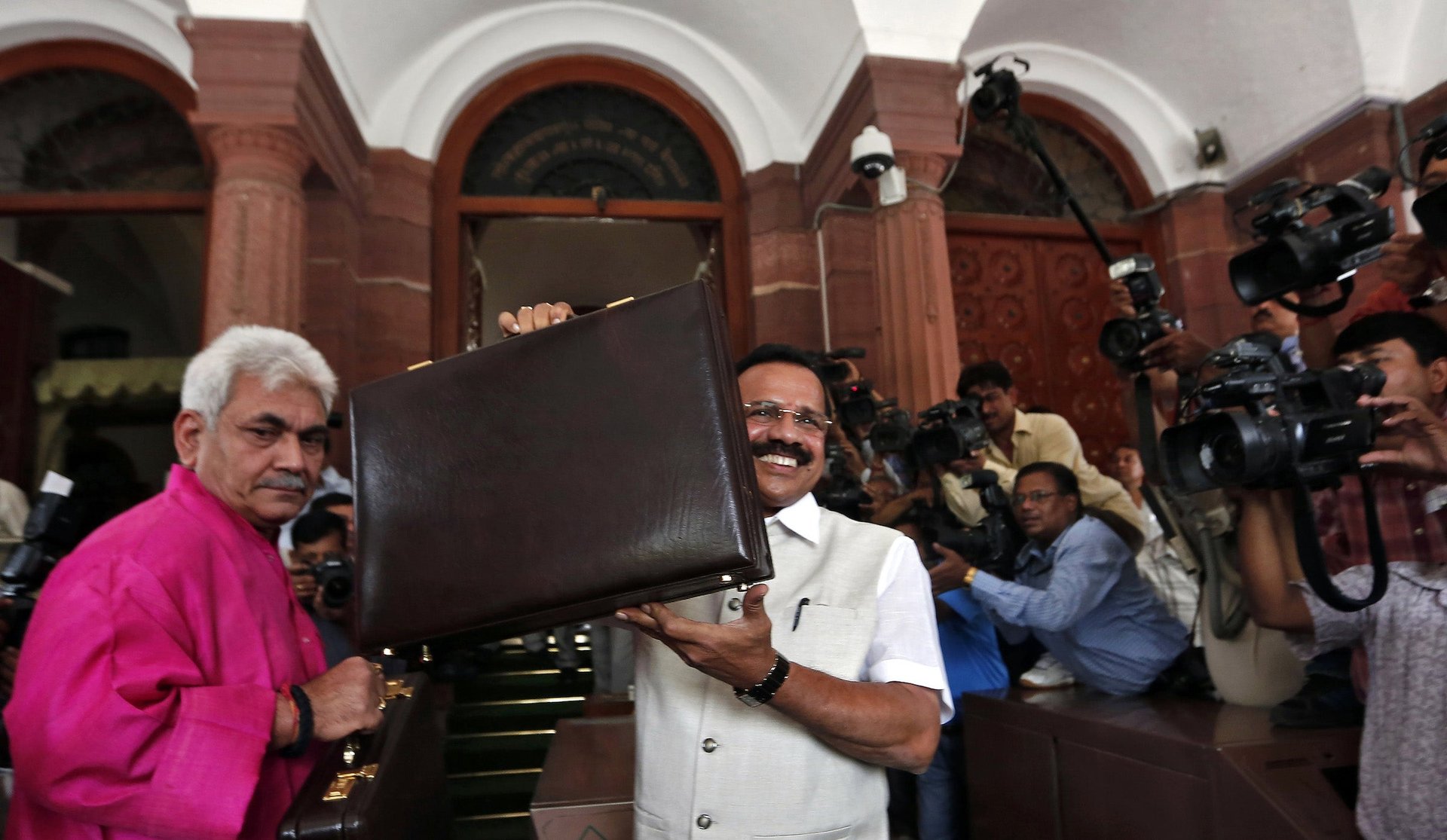Wi-fi, better food, cleaner stations, shopping—what India’s rail minister just promised passengers
India’s rail minister Sadananda Gowda just presented his first rail budget, promising a number of reforms, foreign direct investment, greater investments through public-private partnership and great emphasis on better passenger convenience. He was clear about the bad shape the railways is in, blaming his predecessors for sacrificing good management at the altar of populism. Railways spends 94% of its earnings in operations, investing just 6% in improving infrastructure.


India’s rail minister Sadananda Gowda just presented his first rail budget, promising a number of reforms, foreign direct investment, greater investments through public-private partnership and great emphasis on better passenger convenience. He was clear about the bad shape the railways is in, blaming his predecessors for sacrificing good management at the altar of populism. Railways spends 94% of its earnings in operations, investing just 6% in improving infrastructure.
The announcement that has caught the most attention is the introduction of a bullet train on the Mumbai-Ahmedabad sector. Surprisingly, only Rs100 crore was allocated for BJP’s ambitious “diamond quadrilateral”—a high-speed rail network connecting important trade centres and major cities.
Here are the main promises he made in terms of passenger amenities. A lot of these are announced by every rail minister but we hardly see any of these measures implemented. But Gowda has made clear promises and there would be many opportunities later to hold him accountable.
- Better access: Foot over bridges, escalators and elevators will be built at all stations in partnership with the private sector. Uninterrupted water supply and clean toilets at stations will be ensured through such partnerships. Battery-operated cars will be made available for the physically challenged and senior citizens.
- Improved hygiene: India’s railway stations are notorious for poor hygiene and Gowda wants to change that image. He has hiked allocation for cleanliness by 40%. In 50 major stations, cleaning activities will be outsourced and a separate housekeeping unit will be raised. The sight of railway janitors dragging a broom with supreme disinterest will be phased out. Cleanliness will be monitored through CCTVs and random third-party inspections. Bio-toilets will be introduced to replace the current system of toilets that dump waste on the tracks. He did not quantify the target on this.
- Office on rails: Work stations will be introduced in some trains as a pilot project. Wireless internet access, or wi-fi, will be introduced in all A-1 stations and some trains. He did not specify which trains.
- Easier booking: As we reported this morning, the online-booking system has been overhauled. Gowda says he wants to allow mobile booking and encourage bookings through the ubiquitous postal network. He is also extending e-booking to freight services, so users can book a wagon or a train or a seat, all online.
- Better hospitality: Railways will allow reputed brands to sell pre-cooked meals online. This will end IRCTC’s monopoly on the food business in trains. User feedback will be collected through a helpline. Clean drinking water will be supplied at all stations through private vendors. Food courts that serve regional cuisines will be set up at major stations. Passengers in approaching trains will be able to place orders through email or SMS and the food will be delivered to their seat. Mechanized laundry will be introduced to ensure better quality of sheets in air-conditioned coaches.
- Better safety: Automatic closing of doors will be introduced in both suburban as well as long distance trains. For the safety of women, 4,000 women personnel are being recruited for the Railway Protection Force. This is in addition to the 17,000 personnel that have already been hired. Boundary walls will be built around railway stations to improve security.
- Shop while you ride: Railways will partner with e-commerce companies to provide dedicated pick up spots at stations. So passengers can place an order while travelling and shopping websites can deliver the products at a station before the end of the journey. Gowda did not elaborate on this.
The masterstroke of the government was to keep fare hikes separate from the rail budget. If the hikes had been announced during the budget, it would have taken the attention away from all the good measures Gowda is trying to put in place. By announcing it weeks in advance, the government kept the budget free of distraction. It also allowed the minister to tell the world that this enterprise has been run to the ground by his predecessors, and he is trying everything possible to turn it around.